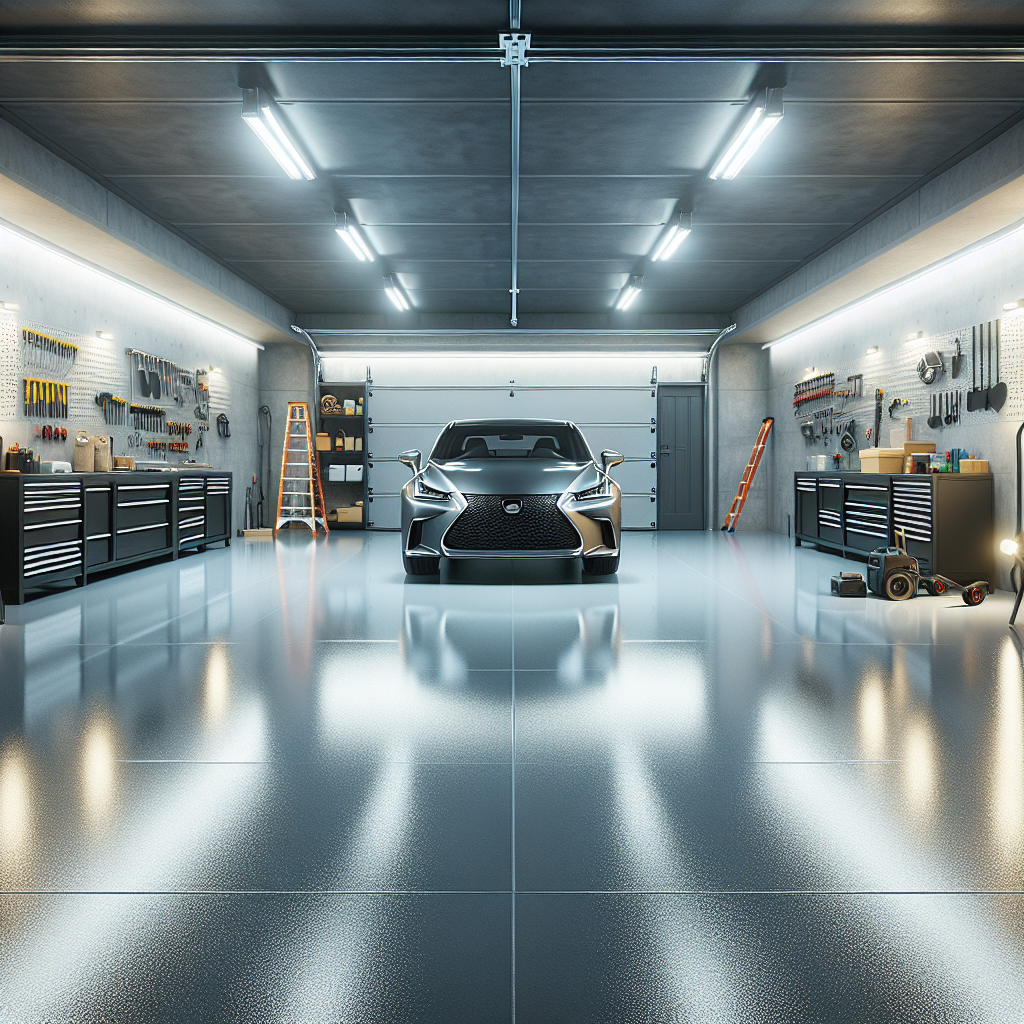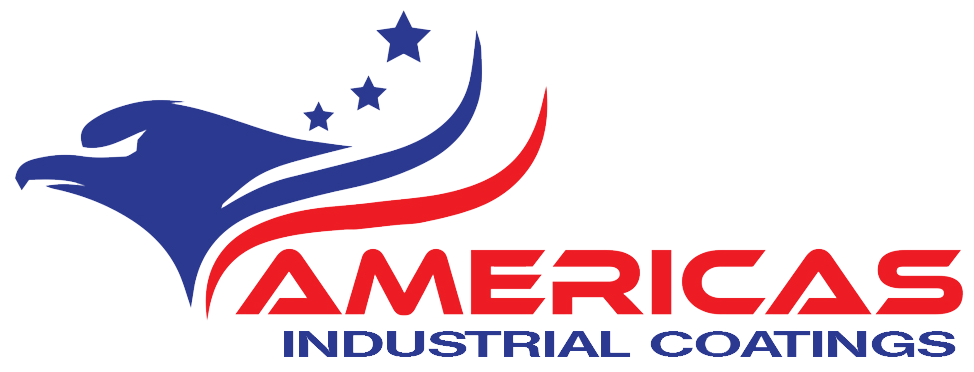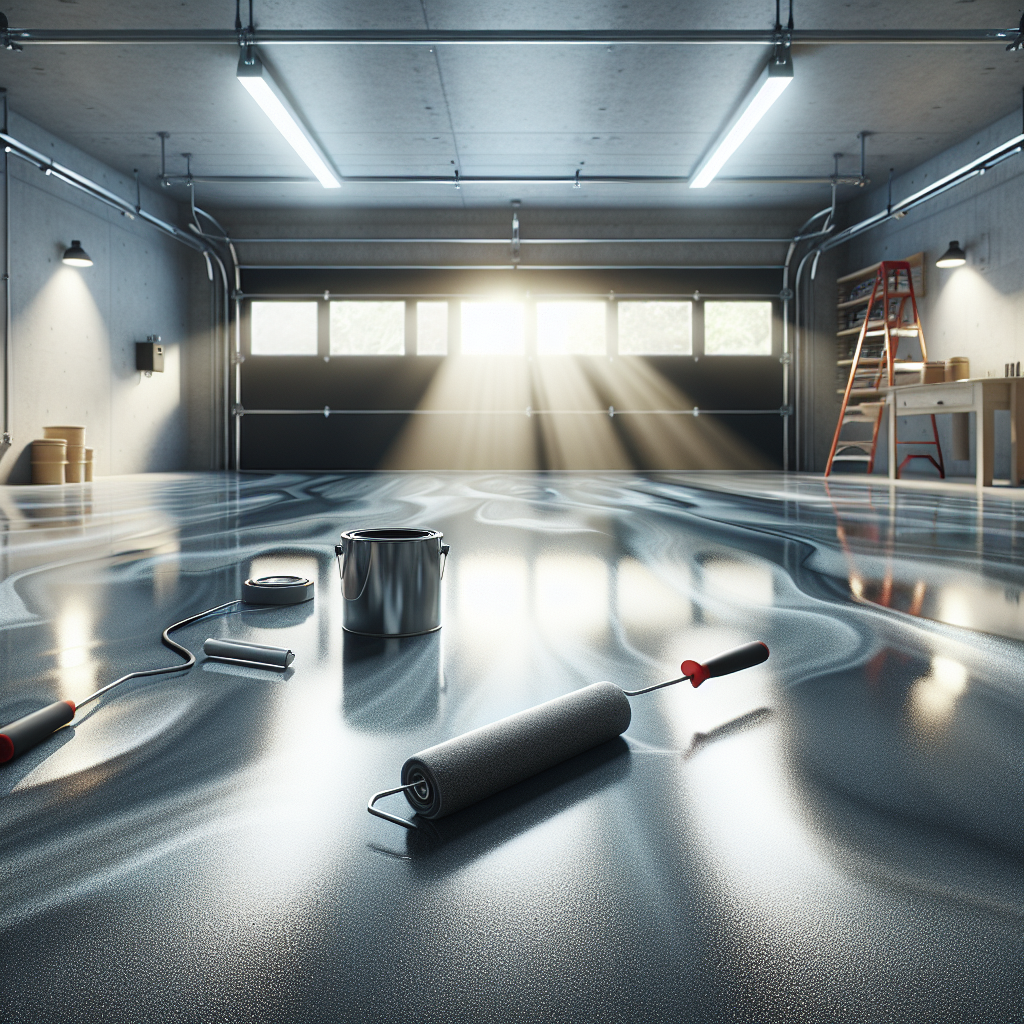When considering a new flooring option for your garage, it’s essential to understand the various factors that influence the overall cost of epoxy flooring. The pricing can vary significantly based on several key elements:
- Size of the Garage: Larger garages will naturally require more materials and labor, leading to higher costs.
- Type of Epoxy Used: There are different grades of epoxy, such as standard, metallic, and quartz-filled, each with varying price points.
- Preparation Work: If your garage floor requires extensive cleaning, repairs, or resurfacing, the costs can increase.
- Labor Costs: Hiring professionals ensures a quality installation, but it’s important to consider their rates, which might differ based on location and expertise.
Additionally, the benefits of investing in an epoxy floor cannot be overlooked. Not only does it provide a durable and easy-to-clean surface, but it also enhances the aesthetics of your garage, potentially increasing your property’s value.
If you’re curious about the exact costs associated with installing epoxy flooring in your garage, don’t hesitate to call us today for a free quote at Americas Industrial Coatings. We are your trusted source for expert epoxy floor installation in Broward County, Florida.
Factors Influencing the Price of Epoxy Floors

Understanding the factors influencing the price of epoxy floors is crucial for homeowners looking to make an informed decision about their garage renovations. Here are some of the primary elements that can affect the overall cost:
- Material Quality: The type of epoxy resin used significantly impacts the price. High-quality materials are often more expensive but provide better durability and longevity.
- Design Complexity: Custom designs, patterns, and color variations can increase costs. Simple, solid colors tend to be more affordable than intricate designs.
- Application Method: The installation process can vary, including techniques such as roll-on, spray, or trowel application. More complex methods may require additional labor and time, thus raising costs.
- Geographic Location: Prices for epoxy flooring can vary by region due to differences in labor costs and material availability. Urban areas may have higher rates compared to rural locations.
- Additional Features: Optional features like anti-slip coatings, finishing layers, or decorative flakes can add to the total cost but enhance the floor’s functionality and appearance.
By considering these factors, homeowners can better estimate the potential costs of epoxy flooring for their garages and make choices that align with their budget and aesthetic preferences.
Comparing DIY vs. Professional Epoxy Installation
When contemplating epoxy flooring installation for your garage, a key decision is whether to undertake the project yourself (DIY) or hire a professional. Each option has its advantages and disadvantages that can significantly affect the final outcome.
- Cost: DIY installation can seem more budget-friendly initially, as it eliminates labor costs. However, consider the potential expenses for tools, materials, and any mistakes that may require more materials or professional help down the line.
- Time and Effort: Installing epoxy flooring is a labor-intensive process that requires careful preparation, mixing, and application. For those with limited experience, this could lead to a time-consuming project that may take much longer than anticipated.
- Quality of Finish: Professionals bring expertise and experience, ensuring a high-quality finish that is difficult to replicate without proper skills. They also know how to handle various substrates and environmental factors that may affect the installation.
- Warranty and Assurance: Many professional installers offer warranties on their work, giving homeowners peace of mind. DIY projects typically do not come with such guarantees, leaving you responsible for any future issues.
- Tools and Equipment: Professionals have access to specialized tools that may not be cost-effective for a one-time DIY project. This includes items for surface preparation, mixing, and applying the epoxy evenly.
Ultimately, the choice between DIY and professional installation depends on your budget, skill level, and the desired quality of the finished product. Weighing these factors can help you make the best decision for your garage flooring needs.
Benefits of Installing Epoxy Flooring in Your Garage

Choosing to install epoxy flooring in your garage comes with a multitude of benefits that enhance both functionality and aesthetics. Here are some compelling reasons to consider this flooring option:
- Durability: Epoxy flooring is known for its incredible strength and resilience. It can withstand heavy loads, making it ideal for garages that house vehicles and equipment. This durability also means it is less prone to chipping and cracking compared to other flooring materials.
- Easy Maintenance: One of the standout features of epoxy flooring is its low maintenance requirements. The seamless surface is easy to clean, resisting stains and spills. A simple sweep and occasional mopping are typically all that’s needed to keep it looking great.
- Aesthetic Appeal: Epoxy flooring offers a sleek, polished look that can elevate the overall appearance of your garage. With a variety of colors and finishes available, you can customize your garage to match your personal style.
- Safety: Epoxy can be enhanced with anti-slip additives, providing a safer surface for walking, especially in areas where spills may occur. This can help prevent accidents and injuries in your garage.
- Resistance to Chemicals: Garages often deal with oil spills, fuel, and other chemicals. Epoxy flooring is resistant to these substances, ensuring that your floor remains intact and easy to clean, preserving its appearance over time.
- Cost-Effective: While the initial investment may be higher than other flooring options, the long-term savings on repairs and maintenance, combined with its longevity, make epoxy flooring a cost-effective choice.
With all these advantages, installing epoxy flooring in your garage not only enhances its functionality but also adds value to your home. It’s a practical choice that meets the demands of a busy garage environment while providing an attractive finish.
Maintenance Tips for Epoxy Garage Floors

To ensure that your epoxy garage floor remains in pristine condition, regular maintenance is essential. Here are some effective tips to keep your flooring looking its best:
- Regular Cleaning: Sweep or use a dust mop regularly to remove dirt and debris. For deeper cleaning, use a mild detergent mixed with water and a soft mop. Avoid using abrasive cleaners or scrubbers that can dull the surface.
- Immediate Spill Cleanup: Although epoxy flooring is resistant to stains, it’s best to clean up spills immediately. Use a soft cloth or paper towel to soak up liquids, and then clean the area with a mild soap solution.
- Avoid Heavy Objects: While epoxy floors are durable, placing excessively heavy items on them can cause damage over time. Use protective mats or pads under heavy equipment or tools to prevent indentations.
- Inspect for Damage: Regularly check your epoxy flooring for any signs of wear or damage. If you notice cracks or peeling, address these issues promptly to prevent further deterioration.
- Use Floor Mats: Place mats in high-traffic areas to minimize wear and tear. This is particularly useful near entry points where dirt and moisture can be tracked in.
- Reapply Sealant: Depending on the level of use and exposure to harsh chemicals, consider reapplying a sealant every few years to maintain the protective layer of your epoxy floor.
By following these simple maintenance tips, you can prolong the life of your epoxy garage floor, ensuring it remains both functional and visually appealing for years to come. Taking the time to care for your flooring will not only enhance its durability but also keep your garage looking clean and professional.
Conclusion on Epoxy Floor Costs and Options

In summary, understanding how much epoxy floor for garage costs involves evaluating various factors, including materials, labor, and any additional features you may want to incorporate. Prices can vary significantly based on the quality of the epoxy, the complexity of the installation, and the specific needs of your garage space.
When considering your options, it’s essential to weigh the benefits of epoxy flooring against your budget. Epoxy floors offer numerous advantages, such as durability, aesthetic appeal, and low maintenance, making them a worthwhile investment for many homeowners.
As you explore your choices, remember that working with professionals can help ensure a quality installation that meets your expectations. At Americas Industrial Coatings, we specialize in expert epoxy floor installation in Broward County, Florida, providing you with the knowledge and support you need to make the best decision for your garage.
Call Us Today for a Free Quote to discover how we can help you achieve the perfect epoxy flooring solution that fits your style and budget!


